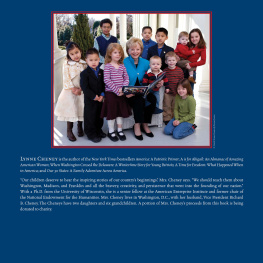LIVES OF THE FOUNDERS

EDITED BY JOSIAH BUNTING III

ALSO IN SERIES:
AN INCAUTIOUS MAN: THE LIFE OF GOUVER NEUR MORRIS
Melanie Randolph Miller
FORGOTTEN FOUNDER,
DRUNKEN PROPHET

T HE L IFE OF L UTHER M ARTIN

Bill Kauffman

W ILMINGTON , D ELAWARE
To the staffpast, present, and future
of the Richmond Memorial Library,
cultural heart of my beloved Batavia

CONTENTS

ACKNOWLEDGMENTS

IN THE COURSE OF A RAMBLING (IF SPENT LARGELY IN ONE place) life I have found beer to be inspiration, and none more so than Jeremy Beer, editor in chief of ISI Books. Jeremy invited me to tell the story of my favorite Anti-Federalist, Luther Martin, and I toast him for it.
I honed, rather than hoved, I hope, part of this argument in a speech at Tufts University. Thanks to Chad Kifer, a fine man with an unaccountable passion for the Miami Dolphins, for setting that up.
The late William H. Riker, gentleman, scholar, and Federalist, sparked my interest in the Philadelphia convention during my malisoned graduate school pit stop almost twenty-five years ago. Thank you, Professor Riker. Sorry for dissing Madison.
Many thanks to Katie Papas and Brenda Reeb of Rush Rhees Library at the University of Rochester, who good-naturedly helped this techno-idiot use, if not understand, machines far beyond my comprehension. Thanks, too, to the staff of the Maryland Historical Society Library, whose archives contained several gems. I am again indebted to Paula Meyer of the Richmond Memorial Library for hunting down elusive books.
Finally, and firstly, this book does not exist without my family. I am forever grateful for the mysteries.
INTRODUCTION
THE PEOPLE WHO LOST

SO LET US THINK ABOUT THE PEOPLE WHO LOST, WROTE THE historian William Appleman Williams, who did not mean by that the 1925 Rochester Jeffersons but rather those unloved, perhaps unlovable, certainly defenderless, conservative presidents John Quincy Adams and Herbert Hoover, whose reclamation the left-wing Iowa patriot Williams undertook.
We have a nasty habit of flushing down the memory hole the people who lost. Or demonizing them. Going back in time and painting Snidely Whiplash mustaches on their luckless countenances.
Historians have not, on the whole, been kind to the Anti-Federalists, the misleading name slapped on those who opposed ratification of the Constitution. In the mainbut not by Main, as we shall seethey have been written off as bucolic bumpkins unable to grasp the exquisiteness of the Madisonian argument or as agrarian radicals motivated by antipathy toward wealth, commerce, and table manners. They are sometimes, grudgingly, with many qualifications, given credit for siring, indirectly, the Bill of Rights, but more often they are swept aside as beetle-browed brutes incapable of appreciating the majesty of the Constitution or, as the old canard goes, as rural debtors fearful that the new Constitution would prevent states from issuing worthless paper money with which they could discharge the debts they had so imprudently run up. Well, hell, Im a rural debtor myself, so permit me to say a few words for the Anti-Federalists: the original people who lost.
Men of little faith, the historian Cecelia M. Kenyon called them. Faith, that is, in the ability of other men to design a tentacular government that would come to cover the better part of a continent. The Antifederalists reflected a relatively early stage in the evolution of modern republican thought, asseverated Kenyon, who conceded that while their ideas were less advanced than those of the Federalists, they were not uninteresting. Cheapjack praise indeed. Im not sure why an author would undertake a book on a subject for which she can muster no praise more lavish than that it is not uninteresting.
The history of weights and measures is not uninteresting. The jurisprudence of Sandra Day OConnor is, maybe, if were in a really generous mood, not uninteresting. The radical and rooted objections of early American patriots to the Constitution are, I venture to say, downright interesting.
The Antis are the menand women, I add, not as a P.C. genuflection but in recognition of the Bay States Mercy Otis Warren, playwright and historian and among the most literary
The Anti-Federalists regarded consolidation of governmental power with what seems to me a meet suspicion, though it has seemed to others to verge on paranoia. One of my favorite Anti-Fed pseudonyms was taken by the writer who called himself None of the Well-Born Conspirators.
They often made wild predictions about where this all would lead. For instance, George Clintonnot the funky parliamentarian but the New York Anti-Federalistprophesied that the federal city created by the Constitution, later known as Washington, D.C., would be the asylum of the base, idle, avaricious and ambitious. Gee, thank God that never happened.
The Anti-Federalists raised a central question of political philosophy: Where ought political power to reside? In a remote central authority, or hard by the people? (My invidious phrasing, I admit.) A prominent Federalistwhich is to say, using the down-is-up nomenclature devised by those crafty consolidationists, an advocate of the new Constitutionlectured that we must forget our local habits and attachments, but this is only possible for those who have no local habits or attachments. One might as well enjoin that we must forget our heart and lungs.
More poetically, a Charleston versifier lamented:
Ye, who have bled in Freedoms sacred cause,
Ah, why desert her maxims and her laws?
When thirteen states are moulded into one
Your rights are vanishd and your honors gone;
The form of Freedom alone shall remain,
As Rome had Senators when she huggd the chain.
The Antis were not quibblers, not captious carpers arguing about dotted is and uncrossed ts. Their objections cut to the heart of the new Constitution. Indeed, they began with the preamble. Samuel Adams, brewer and sometime Anti-Federalist, upon reading We the People of the United States, remarked wryly, as I enter the Building I stumble at the Threshold. I meet with a National Government, instead of a Federal Union of Sovereign States.
They objected to almost every feature of the Constitution. Anti-Federalists wanted annual elections. A larger House of Representatives whose members were paid by the states, not the central government, so that they did not forget on which side their bread was buttered. Rotation in office, or term limits. A Bill of Rights. Limitations on standing armies. No general welfare clause, which, as the Biddeford, Massachusetts, Anti-Federalist Silas Lee predicted, would be construed to extend to every matter of legislation.

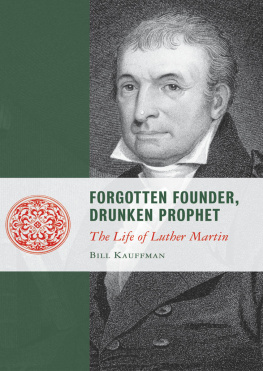
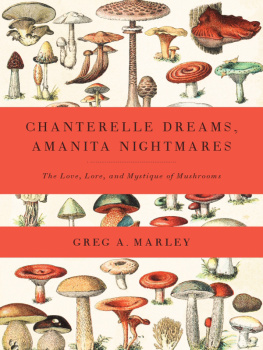
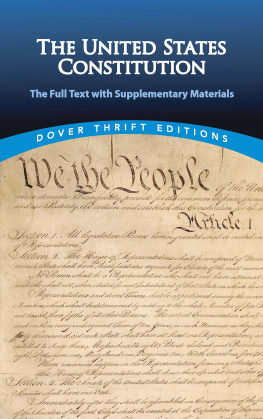
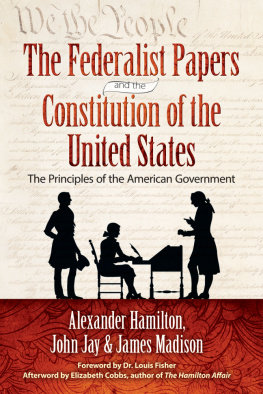

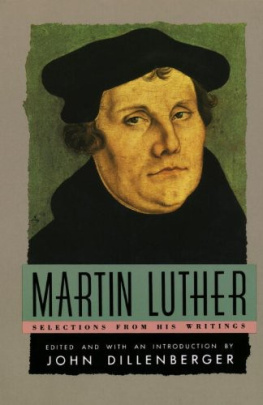

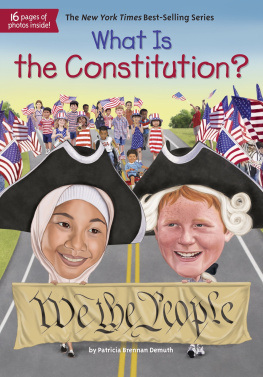
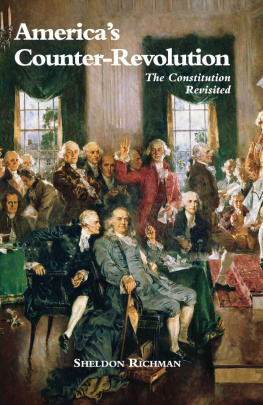
![Jay John - The Federalist : a collection of essays, written in favour of the new Constitution, as agreed upon by the Federal Convention, September 17, 1787. : In two volumes. Vol. I[-II.]](/uploads/posts/book/76130/thumbs/jay-john-the-federalist-a-collection-of-essays.jpg)
